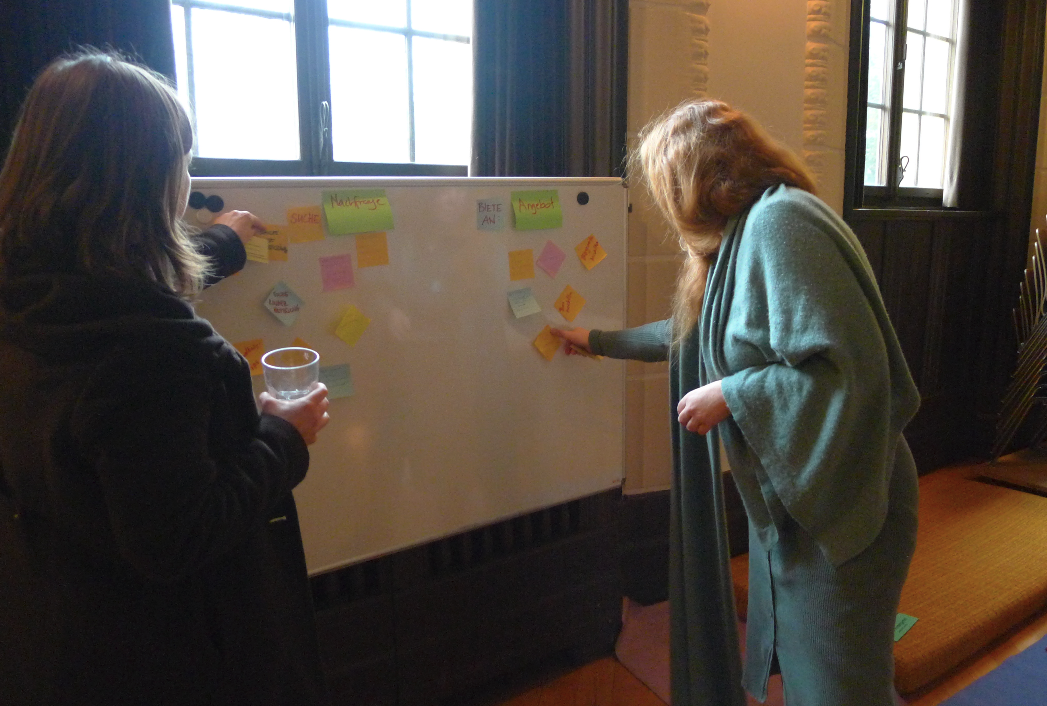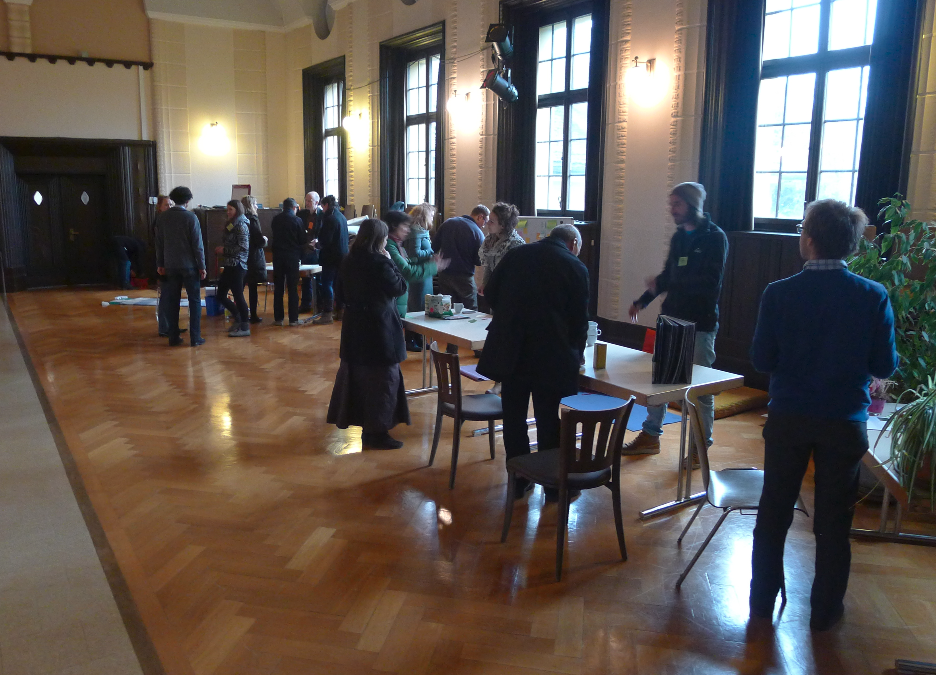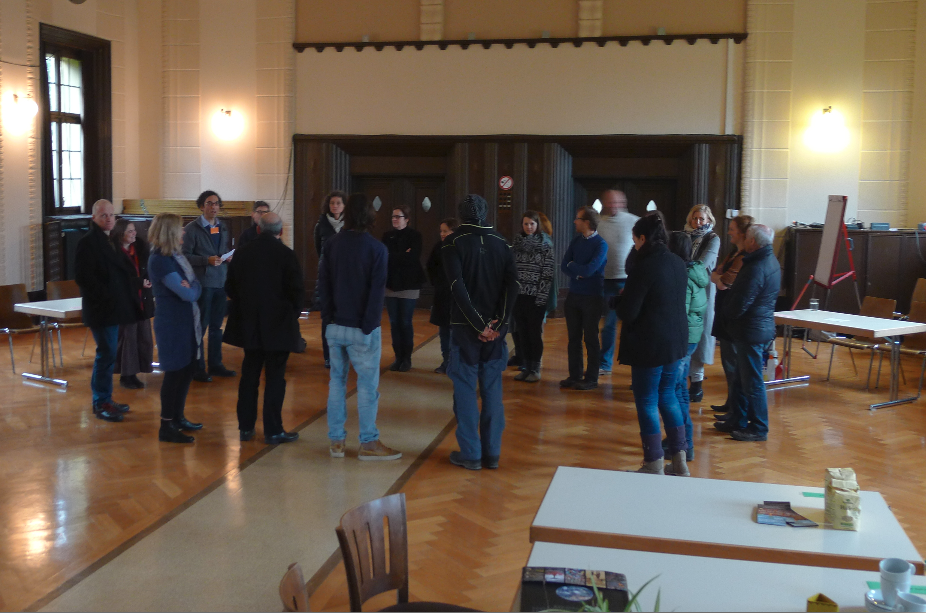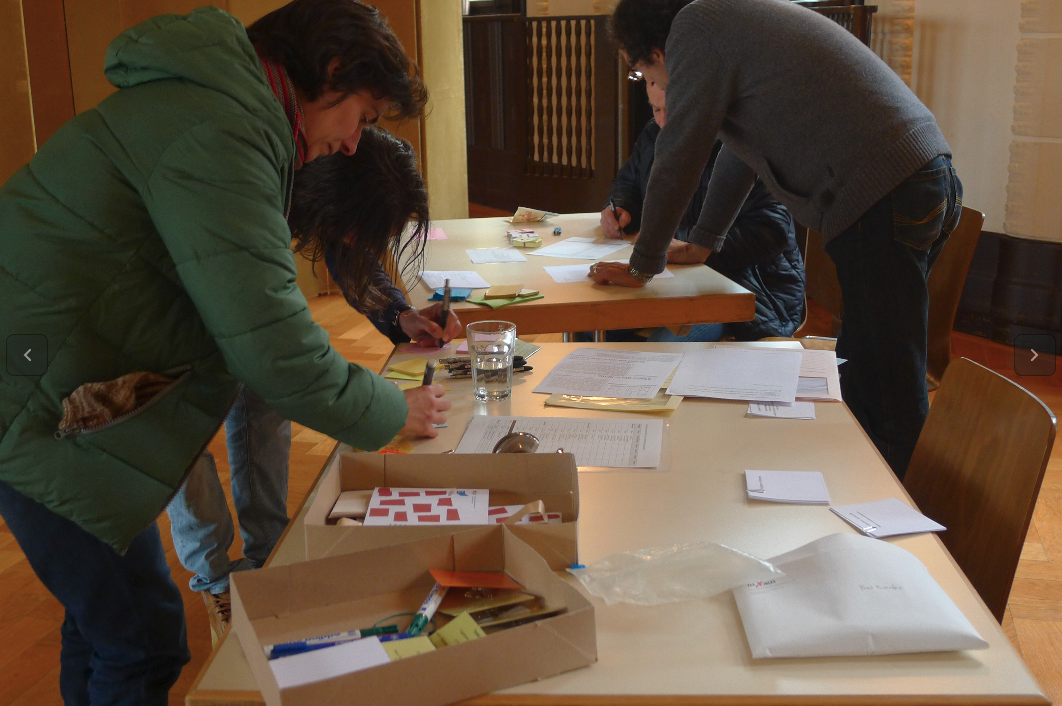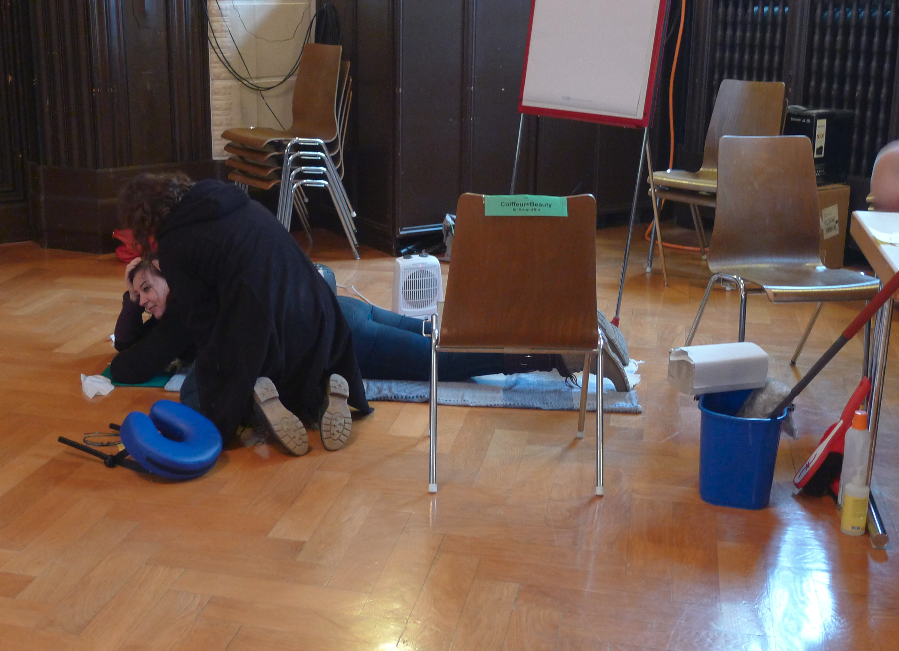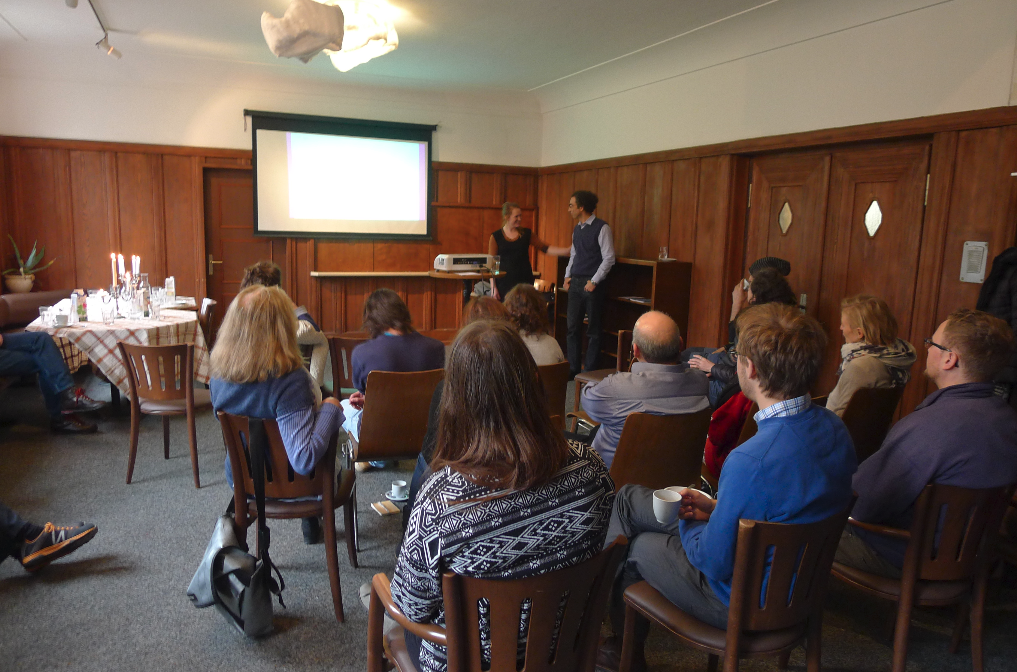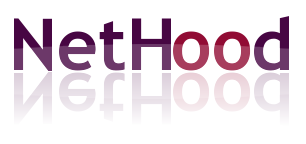
|
about
projects
papers
events
contact
|
Flexonomix® District-Money-Simulation1
Wandellust, Zurich, February 29, 2016
See also: economy
Today's money is not neutral but enforces growth at any price. The monetary system with francs, euros, dollars, etc. is privatized and systemically unjust. Rich are getting richer and the poor poorer. But there are other monetary systems that promote solidarity and justice and respect the principle of the commons - the community (or complementary) currencies.
In the Flexonomix® District-Money-Simulation we start playing our own district currency as a support for commoning activities. We try this out with a simple, dynamic simulation together with all the participants. In this role-game money-circuits and functions are made visible and it becomes clear how abilities and needs, as well as freedoms and obligations play an important role in every money-system.
The “Wandellust” translated maybe as “pleasure of change” is an cultural initiative of young activists in Zurich organized in an association. They got the permission to use a formerly orthodox church building for a couple of years before it might be renovated. They installed there a co-working space and a place for cultural events in the main hall “Wandelhalle” (strolling-hall) and a bar called “Wandelbar” (changeable).
The idea to do the game there was due to the fact that the 29th of February is a “presented day”, an additional time which should be used for pleasure and play, as the two leaders of Wandellust described it. The location was somehow ideal to test the district-money-simulation in its newest form because of its large and well equipped room, which could ideally represent a city-district with its buildings and facilities.
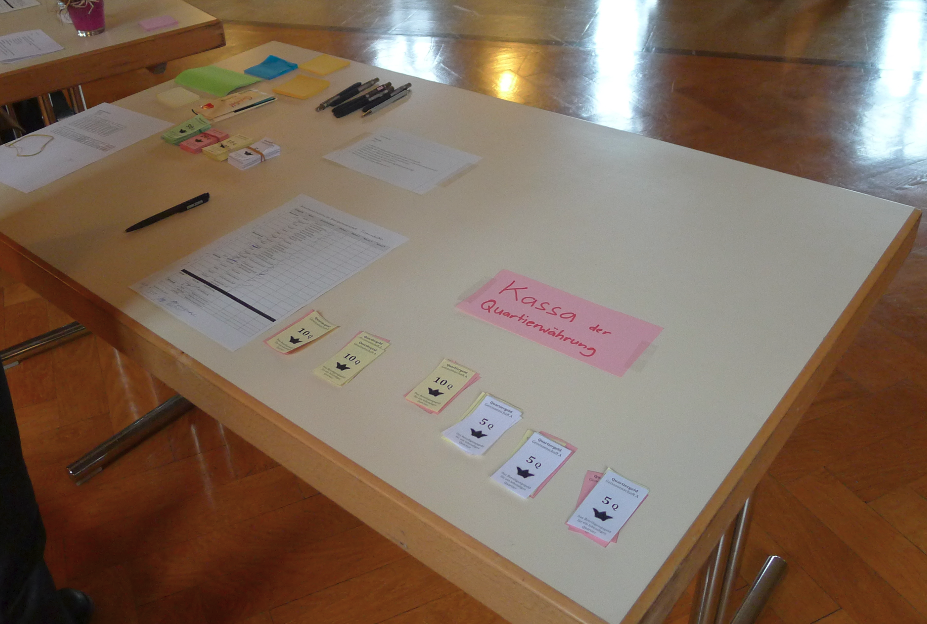
A first introductory lecture in the Wandelbar gave an impression of the ideas and tasks of a community currency and its role as a facilitator of common needs and individual abilities. After a short discussion, the people moved to the Wandelhalle where the situation and locations of the 13th (imagined) district of Zurich and the roles and rules of the game were explained and demonstrated to show how it would work out. Everybody got a name and role, some as members of the council of the inhabitants, one as banker, some as shopkeepers and many as the participating inhabitants of the district. Before the start, a city-song was performed by Paul.
The simulation was played in 3 rounds, each representing one budgetary cycle (“a month”) of the life in this part of the city. During that cycle everybody had to earn some of the district-money “Q” to pay his contribution for the common goods the assembly of all inhabitants produced during that time. The creation of this special type of money was done by the council, creating and paying jobs for producing common goods. The type of goods would ideally be selected after discussion from the assembly of all inhabitants. Examples had been cleaning streets and places, setting up and watching a childrens playground, guarding elderly, etc. By the amount of work performed a certain amount of money entered and could be used also individually to buy services and products from other inhabitants or from the affiliated shops.
At the end everybody moved back to the Wandelbar, where a final discussion and evaluation took place. Around 20-25 people participated in the game (fluctuation see below).
The discussion started immediately after the introduction and one voter was pointing out that the kind of money suggested would never solve the worlds big problems. But later one he was enthusiastic about the game and saw a bunch of benefits. Creativity: After a short while the participants started to add their own ideas to game: Waht they could need or which additional services they also could provide. The acting became sometimes even real: One women, the owner of a hairdressers and beauty-shop started to give real massages to the participants and charged a “free contribution” for that service. She was very motivated to do that and get paid quite well.
As in real world, some inhabitants moved in and some left the district. Thet's because some participants came late and others had to leave earlier. This fluctuation was visible in the balance sheet afterwards, but the system was robust enough nevertheless to perform well.
In the closing round the idea to really think about putting up such a currency in Zurich was popping up. Nine people subscribed a list to be invited in the future discussion.
Introduction, hosts: Gerlinde Zuber, Ivelina Grozeva
Game design and lead: Jens Martignoni
Supporting staff: Ileana Apostol, Fred Frohofer, Julia Weber
Photographer: Panayotis Antoniadis
Singer: Paul Weixler
